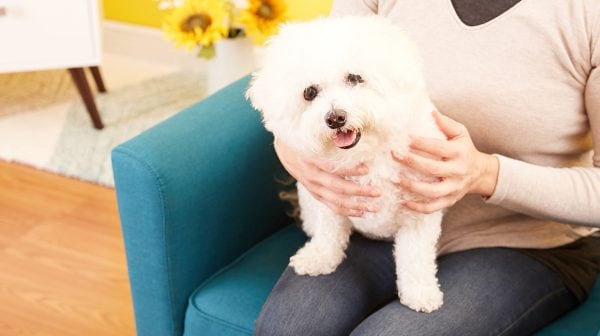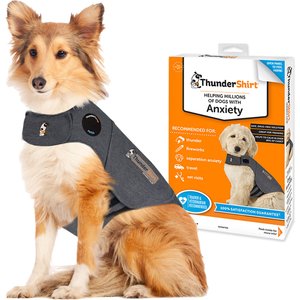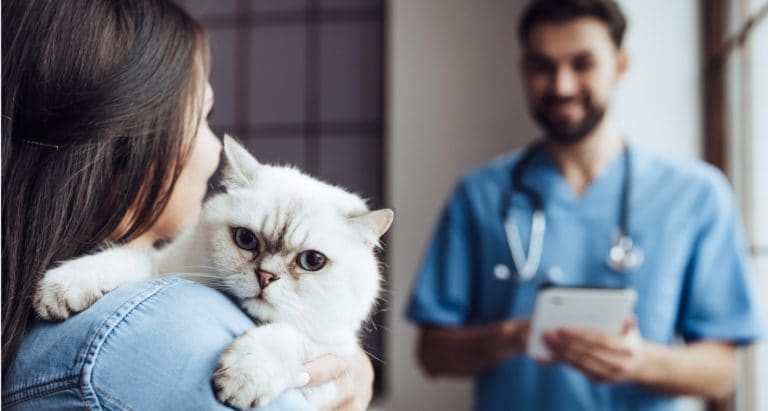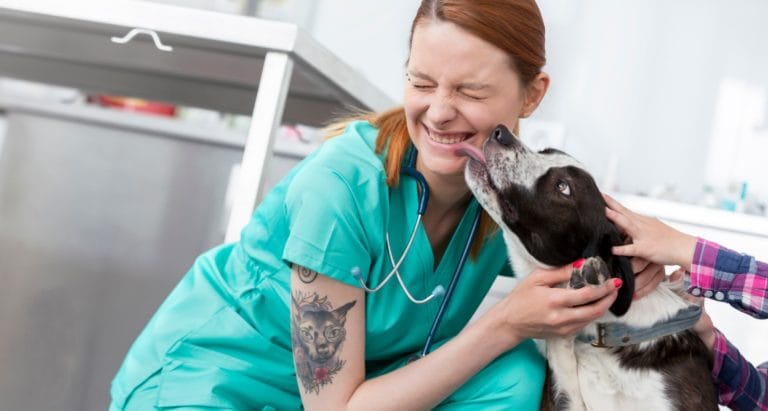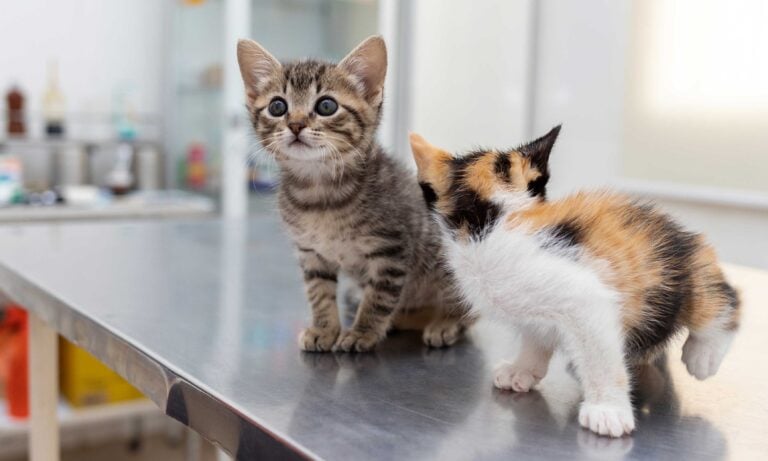Contributed by Sarah Wooten, DVM, CVJ.
Make Your Next Visit to the Veterinarian Stress-Free
If you have a pet, then you know that veterinarian visits have the potential to be extremely stressful for everybody involved. The stress can be especially high if the dog or cat is nervous at the veterinarian hospital. Fearful pets or those under a lot of stress can “forget” their training, which can be embarrassing for pet parents. If you have a nervous dog or stressed cat, even normally docile and loving pets can become aggressive, and bite or scratch. As a pet parent, it can be heartbreaking for you, as you just want your pet to be as comfortable and happy as he or she can be. It can be enough that you don’t ever want to take your pet back to the veterinarian or animal clinic ever again!
The good news is that a pet vet visit can go a lot smoother when the pet parent remains calm, and to do that, you have to calm yourself and prep your pet to be calm. Here are my best tips to help you stay stress-free at the clinic, and how can you can prepare your pet to do the same.
Help Your Pet Have a Happy Visit
One way to help your dog relax at the animal clinic or veterinary clinic is to bring him in for “happy visits,” where only fun, positive things happen. Many animal vet offices encourage this! If you are out and about with your dog, stop by the veterinary clinic and let the hospital staff pet your dog and feed him some treats—this way you will help your dog build a positive association with the vet hospital. I have clients that bring their dog in once a month for a happy visit where they get treats and praise after they jump on the scale for a weigh-in. I have several clients that bring in their own special treats that are only given at the veterinary hospital, so now their dog gets excited when he gets to come to our clinic!
Practice Makes Perfect
When the big day comes, it helps if your pup is hungry before he comes in so that the veterinary staff can feed him dog treats or kibble to help him feel happy. There is a lot of research that shows when a dog eats, it releases feel good hormones inside his brain. Think about how you would feel if your doctor gave you a candy bar to eat while you were getting your blood drawn! If they don’t already, ask the staff at the veterinary clinic to feed your dog treats throughout the entire visit. You can either let them feed treats they have at the hospital, or bring your dog’s favorite treats. I had one client who brought a can of spray cheese, and sprayed a line of it on the floor for the dog to lick up while we gave vaccines—the dog didn’t even notice she was getting shots because she was too busy licking up spray cheese! You can also bring a favorite bone or toy for your dog to chew on during the visit; chewing also releases feel good hormones in your dog’s brain.
Make the Carrier a Happy Place
For cats, it helps to get them used to their pet carrier before their big day. It is important that your cat builds a positive association with their carrier. Too often, pet parents wait until the day of the visit to grab/catch their cat, stuff him in a carrier that he is not used to, put him in a car he is not used to, and then make him sit in the carrier in the waiting room of the vet hospital while a dog stares him down. No wonder cats don’t like the vet!
Prepare your cat for a happier visit by getting him used to the carrier long before the visit happens. You can do this by leaving the carrier out for him to rest in, or try feeding him in the carrier. Be sure to leave the door open! Take your cat for trial car rides so that he gets used to riding in the car. You should make sure the carrier is level in the car by wedging a towel underneath the carrier if you are putting the it on a seat. You can also purchase Feliway pheromone spray and mist the carrier with the spray to reduce stress in your cat. I recommend spraying the carrier 15 minutes before putting your cat inside.
Calm the Nerves Before You Get to the Hospital
Sometimes, a nervous dog may need a ThunderShirt to help them calm down. The ThunderShirt fits snugly on most dogs, and calms them in the same way a weighted blanket calms a child. The ThunderShirt is also available for cats. So if you have a nervous dog or stressed cat at the pet vet, try putting a ThunderShirt on them before you go. If your dog or cat has severe anxiety, talk with your veterinarian about medication that you can give before you bring your pet in.
BREATHE.
It also helps to remember that your pets can pick up on your anxiety. If you are anxious at the vet, your pet will be too—so just breathe. A calmer pet parent often equals a calmer pet. Practice deep breathing when you are in the exam room and be kind to yourself—taking your beloved friend to the vet hospital when he or she is sick can be stressful, but tasking yourself to remain calm will benefit both of you. It helps to leave plenty of time so that you don’t have to rush, and play calming music in the car on the ride there.
There you have it—my best tips to reduce your pet’s stress and your stress at the vet hospital. Follow these tips, and vet visits should go much more smoothly.
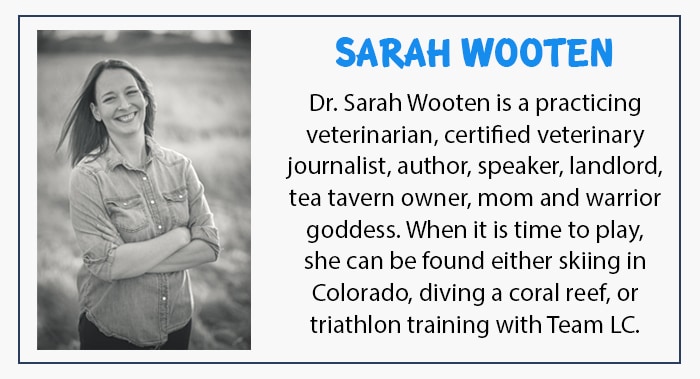
Share:
